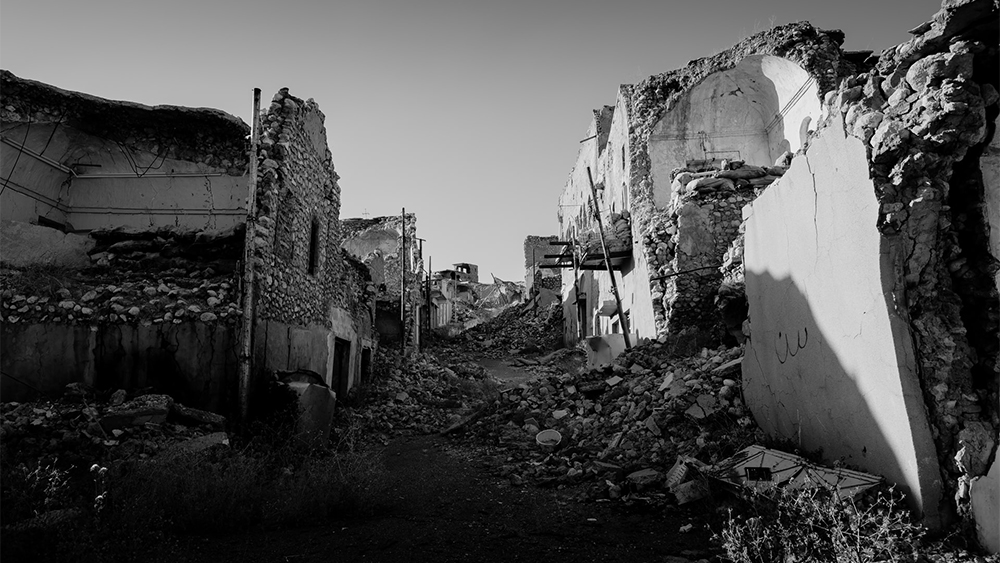Discussions have arisen in Sweden about potentially halting aid to Iraq. However, such a decision could prove counterproductive. Instead, it is the time for Sweden to intensify the support for Iraq, with a specific focus on freedom of expression, writes Hayder Hashim*.
This is an analysis. The opinions expressed are those by the author.
The recent incident in Sweden in which an Iraqi asylum seeker burned the Quran has sparked widespread concern among Iraqis, including not only Iraqi Muslims but also religious minorities such as Christians and Yezidis. Many people argue that free expression should not include defaming or desecrating religious holy books. While the act was condemned, a larger question arose: the attack on the Swedish embassy in Baghdad.
Many Iraqis are asking why the Swedish embassy was attacked only in Iraq and not in other Muslim majority countries; is it because the man who burned the Quran is Iraqi, or are there other reasons?
In general, no one blames Sweden or Swedish people. Many people have families in Sweden, and many people in Iraq see Sweden as a supporter of Iraq since 2003, and people in Iraqi Kurdistan region see Sweden as a supporter of the Kurdistan region since 1991.
One prominent theory suggests that the attack was a show of force orchestrated by powerful Shiite cleric Moqtada al-Sadr.
As the leader of the Sadr Movement, Moqtada Al-Sadr, a prominent Shiite cleric and Iraqi politician, has long been known for his large following and influence. His movement won more legislative seats than any other faction in both the 2018 and 2021 elections, giving him significant sway over the state bureaucracy through supporters in key positions.
While Moqtada’s leadership and popularity among Shiites cannot be disputed, recent political events have cast doubt on his political decisions. Critics claim that, despite his power, he frequently makes rash decisions that he later regrets. Furthermore, he has been criticized for failing to consult with his Sunni and Kurdish allies and friends, resulting in a lack of cohesion in his approach to governance.
After his victory in the 2021 parliamentary elections, Moqtada faced challenges in forming a majority government, resulting in his decision to withdraw from politics. This move allowed Iran-backed Shi’ite groups to gain prominence in the government. The consequences of this decision were soon apparent to everyone, as it became evident that his withdrawal was a significant mistake.
Moqtada has been eager to make a comeback since then, but his methods have been controversial. Instead of diplomatic means, he has stormed the parliament building and the Green Zone, where the government is seated, as well as attacking embassies. Such actions have been interpreted as attempts to assert his power, but they have also raised questions about his approach to resolving political conflicts.
The assault on the Swedish embassy was not an isolated incident. Just days before, Moqtada’s supporters had attacked the Turkish embassy in Baghdad over Turkey’s water policy. These actions appear to be part of Moqtada’s tactics to embarrass the government and weaken its international ties, particularly those established by Prime Minister Sudani, who has cultivated relations with Western countries, including the U.S.
Amidst these developments, discussions have arisen in Sweden about potentially halting aid to Iraq. However, such a decision could prove counterproductive. First and foremost, Sweden must safeguard its interests in Iraq and promote its values. Sweden must also comprehend why Moqtada Al-Sadr is attacking the Swedish embassy, what his motivations are, and what he hopes to gain from the attack.
Swedish aid has traditionally been directed towards bolstering democracy, freedom of expression, governance, and support for marginalized communities. While it may be tempting to withhold aid as a punitive measure, it is essential to recognize that the current Iraqi government, largely backed by Iran, may not be disheartened by such a move. In fact, it could further entrench their disregard for democratic principles and freedom of expression, as the current Iraqi government does not care about Swedish aid; in fact, many of the hard-line Shiite politicians who now control the Iraqi government with Iran’s blessing will be delighted to see Sweden and other western countries cut ties with Iraq so that they can do whatever they want.
Instead, it is imperative for Sweden to adopt a more delicate approach. Now is the time to intensify support for Iraq, with a specific focus on promoting freedom of expression and empowering marginalized populations. By targeting aid towards these areas, Sweden can foster positive change and strengthen the foundations of democracy in Iraq. Moreover, actively engaging with Iraqis and offering platforms for open dialogue and understanding can help bridge gaps and dispel misunderstandings.
Hayder Hashim*
*Due to security reason and possible retaliation from extremist Shiite militias, the author uses a pseudonym.
A Swedish version of this article has been published here.
Read also


